Veronika Zwirglmaier from the Technical University of Munich (TUM) stayed at the ICWRGC from 13 May – 12 November 2019 to write her master’s thesis on the topic “Assessment of...
Read More
Bruno Bezerra Bluhm from the Technical University of Munich (TUM) stayed at the ICWRGC from 13 May – 12 November 2019 to write his master’s thesis on the topic “Uncertainty...
Read More
Observed Impact on Water Resources in the Mediterranean Region: A Meta-Analysis Mihir Rambhia from TUM stayed at the ICWRGC from 07.11.2018–06.05.2019 to write his master thesis dealing with the “Observed...
Read More
The Special Issue in the journal “Advances of Geosciences” has been produced as a follow-up to the 17th Biennial Conference ERB 2018. It contains contributions summarising conference presentations, edited by...
Read More
A booklet by the MedECC initiative with information on climate change in the Mediterranean region and its impacts on water, food security, ecosystems, human security and health was published in December 2018 …
Achieving the SDG targets will require committed efforts by nations and organizations over the coming decade. …
D. Kolesch – Master’s student from the Technical University of Munich Dominik Kolesch from TUM stayed from 05.03. - 04.09.2018 at the ICWRGC to write his master thesis dealing with...
Read More
Recent accelerated climate change has exacerbated existing environmental problems in the Mediterranean Basin due to a combination of changes in land use, increasing pollution and declining biodiversity. For five broad...
Read More
Achieving the long-term temperature goal of the Paris Agreement requires forest-based mitigation. Collective progress towards this goal will be assessed by the Paris Agreement’s global stocktake. At present, there is...
Read More
This report is part of a series of progress reports under the UN-Water Integrated Monitoring Initiative for SDG 6 that reviews the global progress made towards achieving Sustainable Development Goal...
Read More



